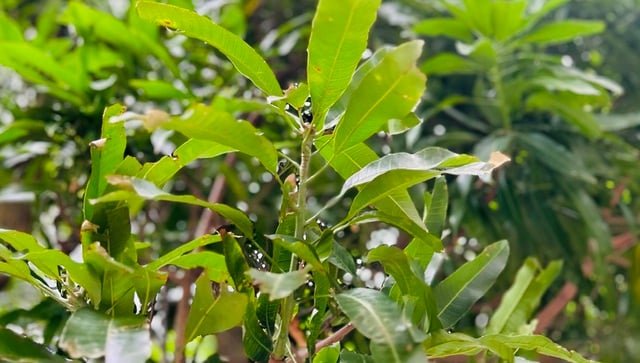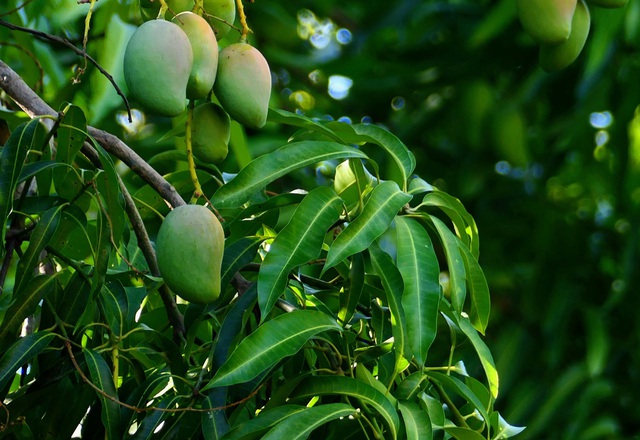Doctor Huynh Tan Vu, lecturer at the Faculty of Traditional Medicine, University of Medicine and Pharmacy, Ho Chi Minh City, said that many people are familiar with mangoes, but may not know that mango leaves can also be eaten and used to make tea and as a supplement.
The effects of mango leaves in traditional medicine
"According to oriental medicine, mango leaves have a sweet and sour taste and cooling properties. They are often used to reduce fever, promote urination, prevent organ prolapse, treat edema and respiratory diseases such as coughs, acute or chronic bronchitis," said Dr. Vu.
According to Dr. Vu, many doctors also use extracts from young mango leaves as a supportive method in the treatment of diabetic patients and people with high cholesterol levels. However, not everyone who drinks young mango leaves will have the effect of lowering blood sugar. When treating diabetes, you should still take medication and follow your doctor's instructions. You can drink young mango leaves as an additional support method.

Mango leaves have a sweet and sour taste and cooling properties.
LE CAM
Diabetes treatment from young mango leaves
Wash 5 mango leaves, drain, cut into strips, then put in a clean cup. Then, pour in 300 ml of boiling water, cover tightly, and leave overnight. Every morning, drink all the mango leaf water above.
Doctor Vu noted that because this remedy is very effective in reducing blood sugar levels, it should not be used many times a day because it can cause blood sugar levels to drop too low, leading to dangerous hypoglycemia.
Mango leaf water should not be taken close to other medications. It is best to take them 2-3 hours apart to avoid affecting the absorption of other medications.
To control diabetes, patients need to change their eating habits. Because diabetes is one of the group of disorders of carbohydrate, fat, and protein metabolism, when the insulin of the pancreas is deficient or reduced, the blood sugar index is always high.
"The health benefits of mango leaves have been proven. However, you should consult your doctor before using them to get the best results," Dr. Vu advised.

Mangoes and mango leaves also contain high levels of mangiferin.
PEXEL
Benefits of mango leaves studied in animals
Rich in plant compounds. Dr. Vu said that mango leaves contain a number of beneficial plant compounds, including polyphenols and terpenoids. Terpenoids are important for vision and the body's immune system. These are antioxidants that protect cells from harmful molecules called free radicals. Meanwhile, poly phenols have antioxidant and anti-inflammatory properties.
Mangoes and mango leaves also contain high levels of mangiferin, which is believed to have many benefits. Studies have shown that this compound has antibacterial effects and is a potential treatment for tumors, diabetes, heart disease, and fat digestion abnormalities. However, more research in humans is needed.
Control obesity and fat metabolism. According to Dr. Vu, many animal studies have found that mango leaf extract inhibits fat accumulation in tissue cells. Adiponectin found in mango leaves is a cell signaling protein that plays a role in fat metabolism and regulating blood sugar levels.
In a 12-week study in 97 overweight adults, those who took 150 mg of mangiferin daily had lower blood fats and significantly better insulin resistance scores than those who took a placebo. Lower insulin resistance suggests improved diabetes management. However, more large-scale studies are needed.
Source: https://thanhnien.vn/bac-si-chia-se-nhung-loi-ich-cua-la-xoai-doi-voi-suc-khoe-185240724082248831.htm


































































































Comment (0)